Dear Friends ,
Slithering & Sneaky , snakes are amazing assassins of the animal kingdom . Check out how big these tubular titans can get ......
!) Reticulated Python : Longest Found 49 Feet Long .
The thrill of interacting with a large, tame reticulated python is hard to describe; you truly appreciate their gentle disposition. Although it’s easy to become enamored with the sheer size and power of an adult retic, as conscientious keepers we must never forget that these giants command the utmost respect and responsibility. It takes careful consideration, time, energy and resources to raise these serpent gems into giants, but the rewards can be measured in feet.
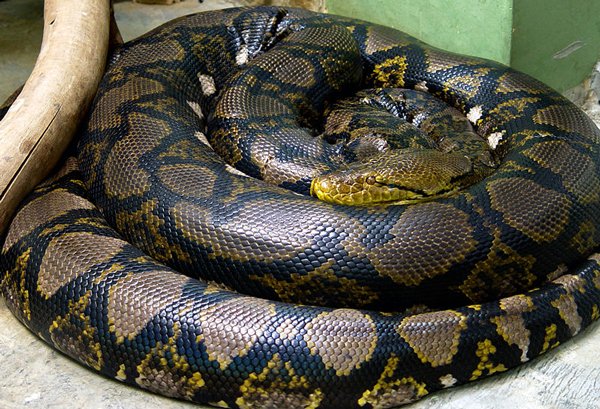
2)Green Anaconda : Longest Found 37 Feet Long .
Captive green anacondas do best when given water containers in which to soak and swim, it is important to remember that the size of the water container will need to increase to accommodate the growing anaconda.
The majority of green anacondas are fierce biters and do not have suitable temperaments to be kept as captives. They are not recommended as captive pets to anyone but experienced keepers with quick reflexes and lots of cage space.
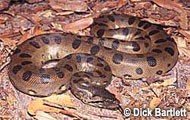
Scrub Python : Longest Found 36 Feet Long .
We've all seen him on television, the crazy Australian who, with all the enthusiasm of a 10-year-old boy, catches crocodiles and venomous snakes with his bare hands-the Aussie who tackles kangaroos and wild boars and lets the deadliest snakes in the world tongue-flick his face. Together with his American wife, Terri, Steve Irwin, better known as The Crocodile Hunter, has created one of the most popular shows on television.
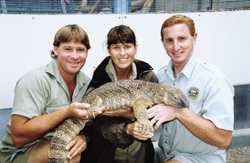
African Rock Python : Longest Found 20 Feet Long .
Boas and pythons require clean enclosures with good ventilation. Most snakes will climb if branches or platforms are provided. Hide boxes should also be provided. All captive snakes require fresh water to drink in bowls made of nonporous materials.
As a general rule, most pythons and boas will do fine in temperatures ranging between 86 degrees Fahrenheit during the day and 80 degrees at night. It's a good idea to provide a basking spot 5 to 7 degrees higher than the rest of the cage that the snake can voluntarily choose to enjoy.
Boas and pythons are carnivorous animals that will feed on rodents such as mice, rats, hamsters and gerbils. Most pythons and boas are fed once a week.
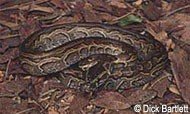
King Cobra : Longest Found 18.5 Feet Long .
Housing a snake that is quick, intelligent, and deadly, as well as over 12 feet long, can be challenging. When kept, they usually are given their own enclosures, one pair per enclosure. Commonly enclosures are at least 5 feet wide by 10 feet long and tall enough for a person to stand and maneuver during maintenance. At least one lockable hide box or switchbox is essential, but this species often refuses to be goaded into entering a box. Ventilation is a must, as is a large tub of water for humidity and bathing. Keep the temperature in the range of 85 to 95 degrees Fahrenheit, dropping a few degrees at night. Some specimens spray liquid feces over all surfaces daily, so keeping the enclosure clean is difficult and dangerous.
Many king cobras refuse to eat in captivity, but those that do will take several large rats or rabbits a week and also any dead snakes that can be found. A large male is recorded eating over 5 pounds of rats and snakes in a single week.
King cobras are much too dangerous to be kept by individuals without proper training. They are notorious escape artists, and their bite can kill an adult human in 15 minutes under rare circumstances.
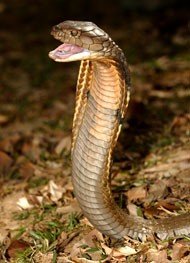
The encounter between the two reptiles brought a flurry of questions on social media where the footage was first published. The images are very graphic, showing the reticulated python fighting for its life as well as the king cobra, which was fighting to breathe due to the constriction it was experiencing from the much smaller snake.
nice photo! I appreciate your work
Thanks Bro ! Do not forget to go through daily !
Hi! I am a robot. I just upvoted you! I found similar content that readers might be interested in:
http://www.reptilesmagazine.com/Snake-Species/King-Cobra/